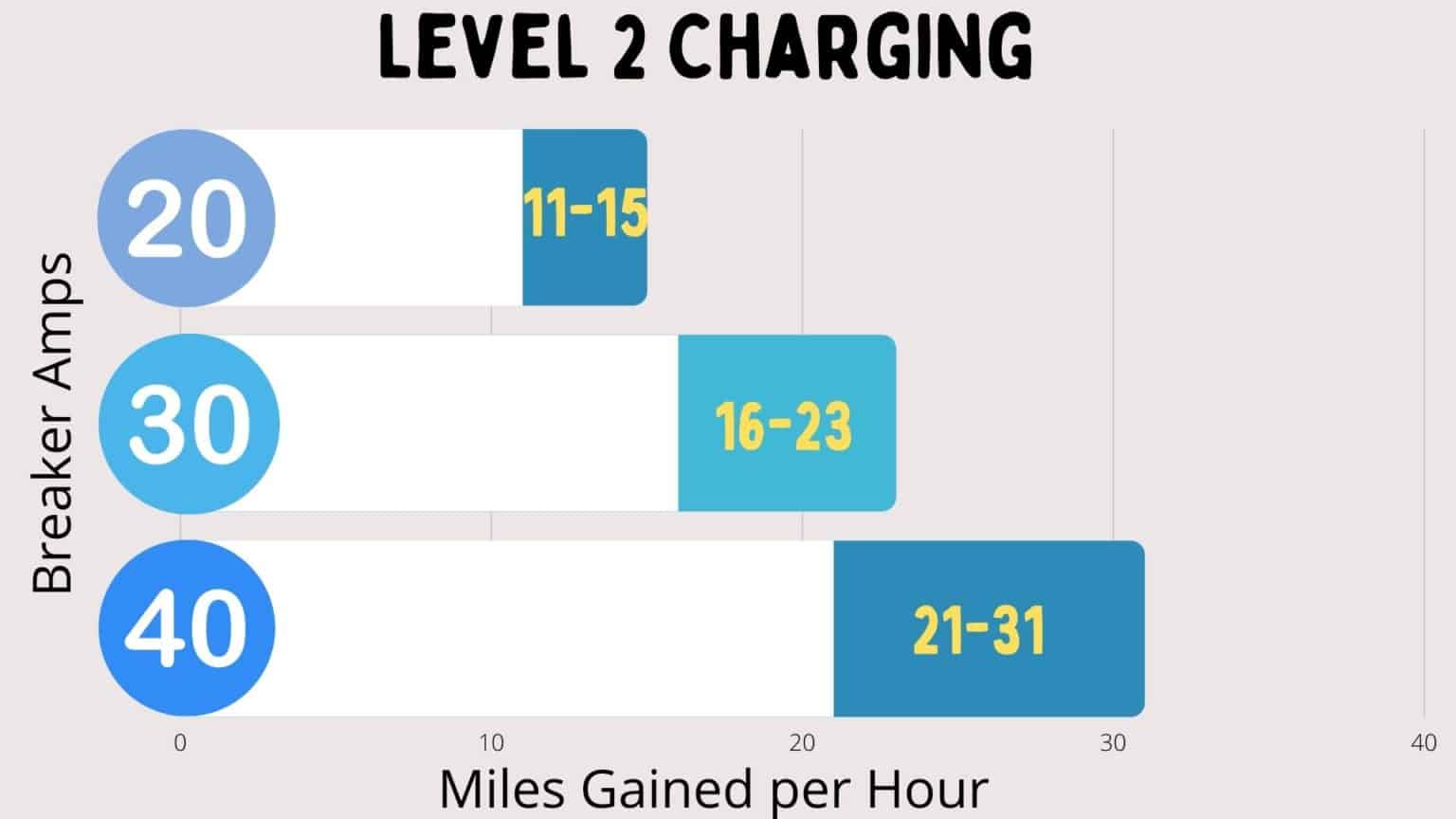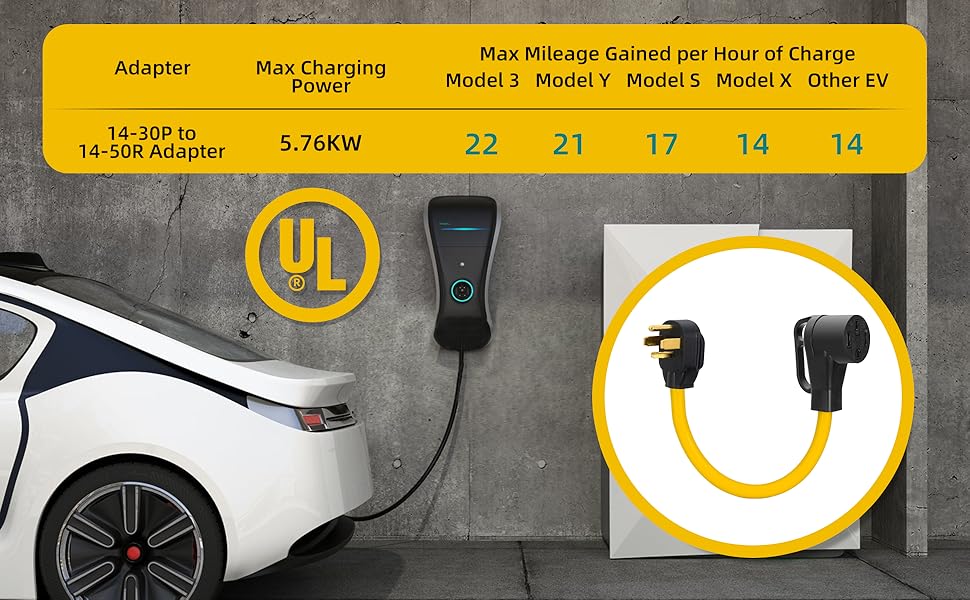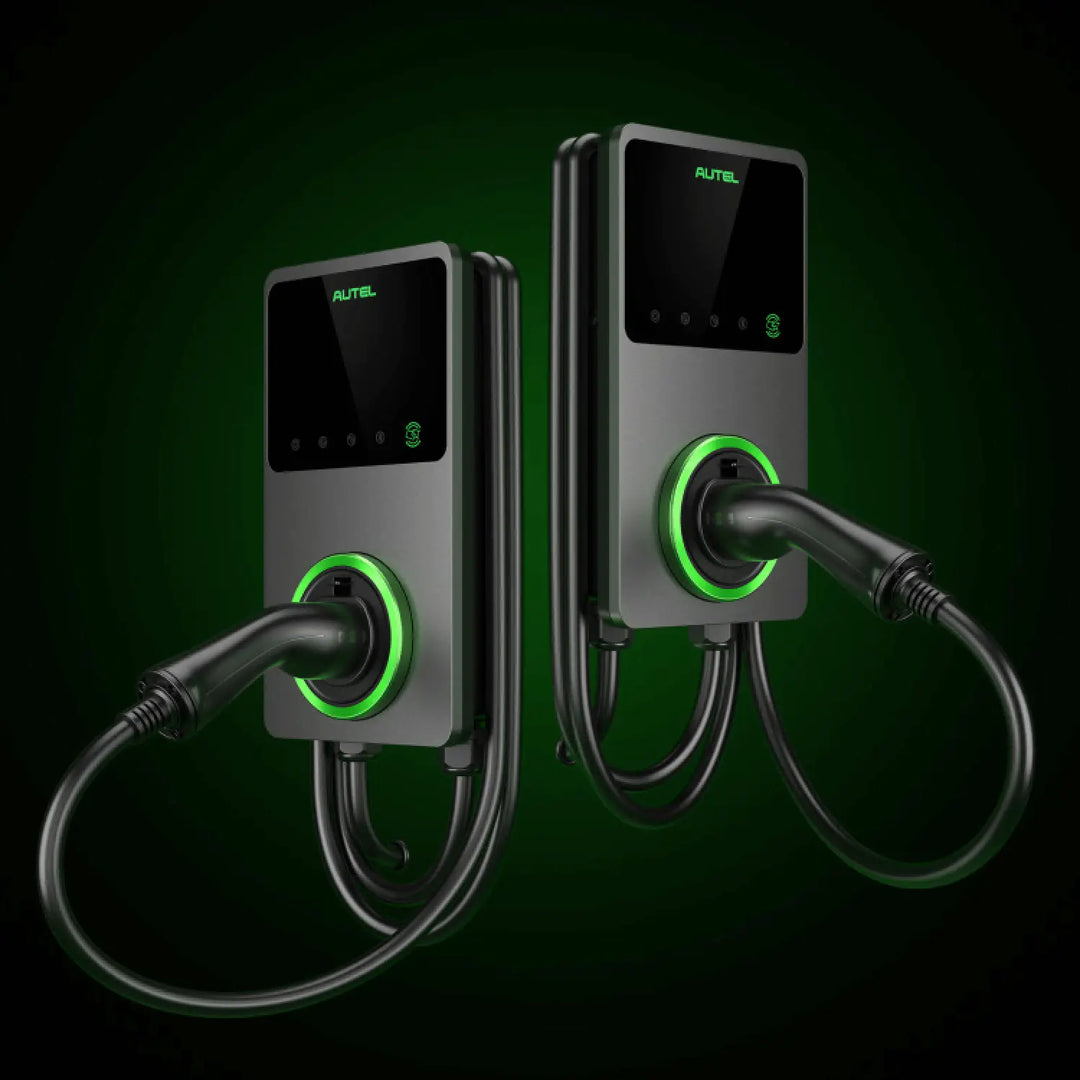Unique Info About How Fast Is A 50 Amp EV Charger

Unlocking the Speed of a 50 Amp EV Charger
1. Understanding Amperage and Electric Vehicle Charging
So, you're considering making the leap to electric vehicle (EV) ownership? Fantastic! One of the big questions swirling around is charging speed. Forget about needing a flux capacitor; understanding amperage is key. You've probably heard about different charger levels, and a 50 amp EV charger often pops up in the conversation. But how fast is it, really? Let's break it down in a way that even your grandma could understand (no offense, Grandma!).
Think of amperage like the width of a water pipe. The wider the pipe (higher the amperage), the more water (electricity) can flow through it at once. A 50 amp charger, therefore, can deliver a good chunk of electricity to your EV's battery. This is significantly more than a standard wall outlet, which typically provides 12 amps or less. It's like comparing a garden hose to a fire hose — a noticeable difference!
But amperage isn't the only factor. Voltage also plays a crucial role, like the water pressure in that pipe analogy. In North America, most 50 amp EV chargers operate at 240 volts. Together, amperage and voltage determine the charging power, measured in kilowatts (kW). This is what ultimately dictates how quickly your battery fills up. We'll get into the math a little later, but don't worry, it's not rocket science (unless you are a rocket scientist, in which case, hi!).
Many new EVs on the market can handle a 50 amp circuit for charging. That is because it offers a practical balance between speed and installation cost for homeowners. If you have the capacity to install one in your home it is definitely a great option to get!
2. Crunching the Numbers
Alright, let's get down to the nitty-gritty, but not too nitty-gritty. The charging speed you'll experience with a 50 amp EV charger depends on a few things, namely the voltage (usually 240V) and the efficiency of your EV's onboard charger. Most EVs can accept around 7.6 kW to 9.6 kW from a 50 amp circuit.
Using 7.6kW as an example, let's do some calculating. A charger delivering 7.6 kW provides 7.6 kilowatt-hours (kWh) of energy to your car per hour. Now, how many miles that equates to depends on your vehicle's efficiency, which is measured in miles per kWh (miles/kWh). Most EVs get somewhere between 2.5 and 4 miles/kWh. So, if your car gets 3 miles/kWh, you'd be adding roughly 23 miles of range for every hour of charging (7.6 kW x 3 miles/kWh = 22.8 miles). Not bad, right?
Keep in mind that these are just estimates. Factors like the battery's current charge level (charging slows down as it approaches full), ambient temperature, and the car's internal systems can all affect charging speed. Think of it like trying to fill a water balloon — it's faster at the beginning, but slows down as it gets close to being full to prevent it from bursting.
Therefore, you will likely see on average roughly 20 to 35 miles of range per hour of charging for a 50 amp charger, depending on the efficiency of your electric car. Also know that the larger the battery size of your EV means it will take more time to fully charge.
3. Comparing a 50 Amp Charger to Other Options
So, where does a 50 amp EV charger stand in the grand scheme of things? Let's compare it to other common charging options. A standard 120V wall outlet (Level 1 charging) is the slowest, typically adding only 3-5 miles of range per hour. It's fine for topping off the battery overnight, but not ideal for a full recharge.
Next up is Level 2 charging, which includes the 50 amp charger we've been discussing. These chargers use a 240V circuit and can add significantly more range per hour, as we've seen. They're a great option for home charging and are also commonly found at public charging stations.
Then there's DC fast charging (Level 3), also known as rapid charging. These chargers use high-voltage DC power to deliver incredibly fast charging speeds, often adding hundreds of miles of range in an hour. However, they're typically only found at public charging stations and are more expensive to use. Plus, frequent DC fast charging can potentially degrade your battery over time. It's like eating fast food all the time — convenient, but not the best for long-term health.
Ultimately, the best charging option for you depends on your needs and budget. A 50 amp EV charger strikes a good balance between speed, convenience, and cost for many EV owners. It offers a significant speed boost over Level 1 charging while being more affordable and less stressful on your battery than frequent DC fast charging.
4. Installation Considerations for a 50 Amp Charger
Okay, you're convinced that a 50 amp EV charger is the way to go. But before you start envisioning yourself zipping around town in your fully charged EV, there are a few installation considerations to keep in mind. First and foremost, you'll need to make sure your home's electrical panel can handle the extra load. This may involve upgrading your panel, which can be a significant expense.
It's also crucial to have a qualified electrician install the charger. They'll ensure that the wiring is up to code and that the charger is properly grounded. This is not a DIY project, unless you're a licensed electrician with extensive experience in electrical installations. Trust me, messing with electricity is not worth the risk.
You'll also need to choose a location for the charger that's convenient for parking your EV. Consider the distance to your electrical panel and whether you'll need to run conduit or bury wiring. Some chargers are hardwired directly into the electrical system, while others plug into a NEMA 14-50 outlet (the same type used for electric stoves and dryers). The type of charger will dictate the installation requirements.
Finally, check with your local utility company for any rebates or incentives that may be available for installing an EV charger. Many utilities offer programs to encourage EV adoption, which can help offset the cost of installation. It's always worth doing your homework and taking advantage of any available savings.
5. Maximizing Your 50 Amp EV Charger Experience
So, you've got your 50 amp charger installed and ready to go. Now what? Here are a few tips to maximize your charging experience. First, take advantage of off-peak charging rates. Many utilities offer lower electricity prices during nighttime hours, so setting your EV to charge overnight can save you money.
Consider using a smart EV charger that allows you to monitor your charging progress, schedule charging sessions, and track your energy usage. These chargers often come with mobile apps that make it easy to control your charging from anywhere.
Don't wait until your battery is completely empty before charging. It's generally better to top off the battery regularly rather than letting it drain completely. This can help extend the battery's lifespan. Think of it like snacking throughout the day instead of waiting until you're starving to eat a huge meal.
Keep in mind that extreme temperatures can affect charging speed and battery performance. Try to park your EV in a garage or shaded area during hot weather, and consider using a battery warmer in cold weather. These simple steps can help optimize your charging experience and prolong the life of your EV's battery.

30 Amp Tesla Adapter, 1.8FT NEMA 1430P To 1450R EV
Frequently Asked Questions About 50 Amp EV Chargers
6. FAQ
Most modern EVs are compatible with 50 amp Level 2 chargers. However, it's always a good idea to check your vehicle's specifications to ensure compatibility. Some older or less expensive EVs may have limitations on the maximum charging rate they can accept.
7. FAQ
A 50 amp charger is a 240V charger. Level 2 chargers typically use a 240V circuit, and a 50 amp breaker is a common configuration for these chargers. The combination of amperage and voltage determines the charging power.
8. FAQ
The cost of installation can vary widely depending on your home's electrical system and the complexity of the installation. Expect to pay anywhere from a few hundred dollars to over a thousand dollars, including the cost of the charger itself and the electrician's fees. Get quotes from multiple electricians to ensure you're getting a fair price.
9. FAQ
While it might be tempting to save money by installing the charger yourself, it's generally not recommended unless you're a licensed electrician with experience in electrical installations. Messing with electricity can be dangerous, and improper installation can lead to fire hazards or damage to your vehicle.

50 Amp Ev Charger & Level 2 Autel EV Chargers


Autel Home Smart Electric Vehicle (EV) Charger, 50 Amp Level 2 WiFi
